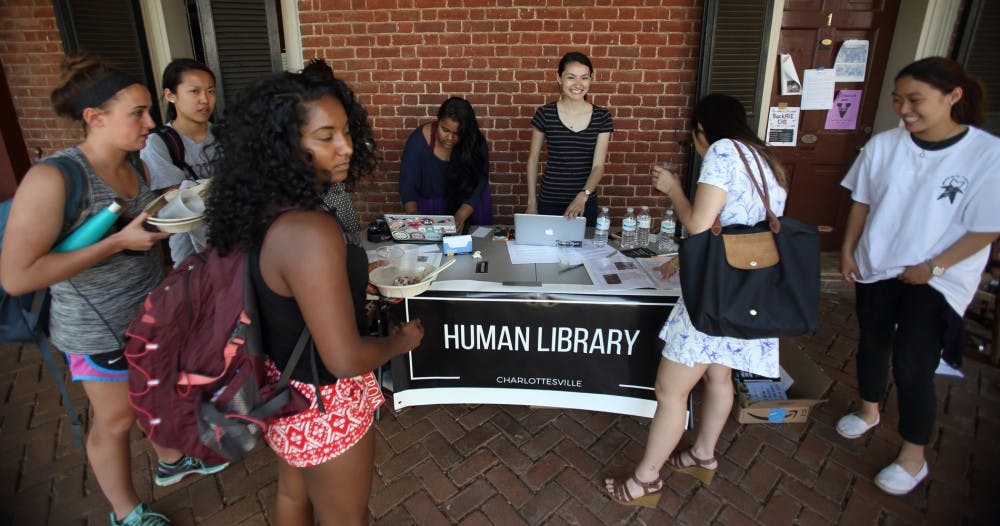The inaugural Human Library — an initiative which seeks to tell the stories of students, faculty and community members in an intimate way — was held on the Lawn the afternoon of April 14.
Each storyteller was referred to as a “book” and was given 20 minutes to tell their stories in whatever way they would like. There were a total of 31 “books” who participated, and they told stories in two shifts over the course of four hours.
Third-year Commerce student Evelyn Wang participated by presenting herself as a “book” titled “Silences.” Although she didn’t want the specifics of the story to be shared for those who weren’t at the event, she said the process of the storytelling itself was a part of “breaking the silence.”
“I think that it was very rewarding,” Wang said. “I think it’s a very unique event in that way, and for me it was very emotional and difficult, but also very important.”
She said the feedback she received was what she liked most about the storytelling, as many people told her the story she told them really resonated with them.
“To quote a friend — it’s going to become a staple of the university, an annual event that everyone looks forward to,” Wang said. “I thought it was a really good way to connect with people and remind everyone about the complexity of everyone's individual experiences.”
Third-year Commerce student Alicia Wang, who was an organizer for the event, said the concept of the Human Library is exactly like a regular library where people come and check out books, except the books are presented by people who tell their personal stories about a stereotype or prejudice they have faced.
The Human Library project was originally developed in Copenhagen, Denmark in 2000 as a way of telling people’s stories and to challenge widely-held stereotypes. More than a thousand readers turned out for the original event, sparking a movement in personalized storytelling.
Since then, the Human Library has become an international program, reaching people all over the globe with deeply personalized stories of success, loss and hardship.
“They [the Human Library] actually operate over 84 countries across the world,” Alicia Wang said. “It operates like a TEDx thing where you have to apply for their licenses to host it here. We thought it would be a really cool initiative to start at U.Va. to show people the power of storytelling.”
The books themselves encompass a wide variety of human experiences. Short snippets of several of these stories have been posted to the Human Library’s Facebook page and feature narratives about school after military service, dealing with the divorce of parents, depression and surviving sexual assault. Each story seeks to inform listeners of what makes each book who they are.
Graduate College student Jannatul Pramanik said the purpose of the program from its conception was to use conversations to expand people’s perspectives on identities and stories.
“When [we] go to a library and we check out books, we check them out for the stories and … to expand our knowledge about the stories within them,” Pramanik said. “The way that we do this [for the Human Library] we reach out to people that we knew had interesting life stories and ask them, ‘Would you be willing to share your stories with other people?’”
The Human Library Charlottesville also runs a Facebook page and continually shares personal stories of University students throughout the school year.







